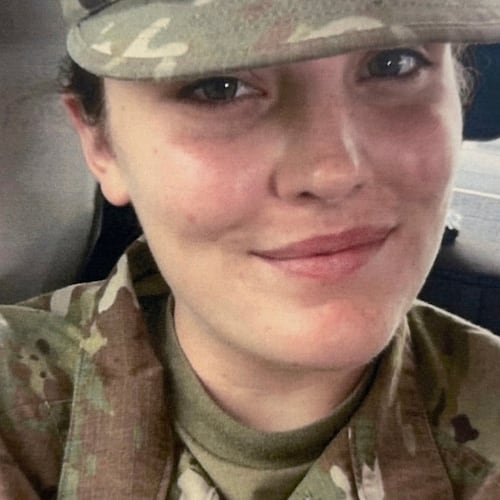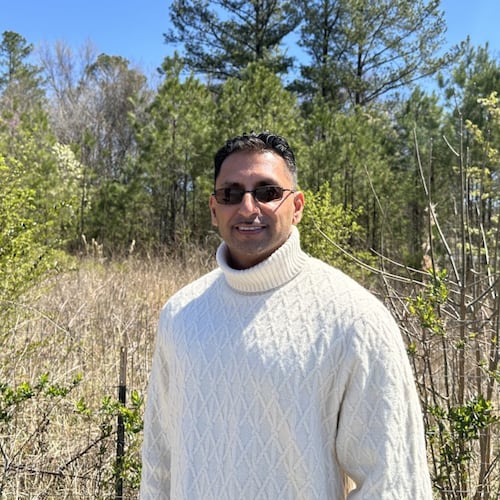A citizen review of cases where police allegedly used deadly force against citizens has in the past languished for years. A new agreement has the police promptly referring closed cases to the board.
Councilwoman Andrea Boone, chair of the city’s public safety committee, said she is looking for significant improvement in how the Atlanta Citizen Review Board operates. By the end of the year, she expects the board to start investigating the four dozen deadly force cases that stretch back to 2020.
The agreement between the board and the Atlanta police is a milestone in nearly six months of talks on how to address findings by The Atlanta Journal-Constitution that the board had failed to open even one investigation of police shootings and custody deaths between 2020 and 2024.
While the City Council does not have the power to vote on the agreement, members were alerted to it on Monday and sent copies of the final draft.
Boone, in comments to the AJC following the meeting Monday, said she would give the board a short time to show improvements. She warned that more changes may come — this time at the direction of the council — if there is not enough change.
“At the end of 2025, one, I want the public to feel better about the board. I want the public to feel like they have a board that cares, that’s fully functioning and that’s operable. Two, I want to see the Atlanta Citizen Review Board and the new investigators do a better job of solving cases and bringing recommendations,” Boone said.
Credit: Natrice Miller/AJC
Credit: Natrice Miller/AJC
An 8-page memorandum of understanding between the review board and the Atlanta Police Department is intended to increase transparency and build trust.
Mayor Andre Dickens and the City Council were outraged in January to learn from the AJC investigation that deadly force cases had languished with the board for more than four years. Dickens and the council will now be directly informed of the board’s decisions on each police deadly force case it investigates, according to the agreement.
The mayor, police chief and the board’s executive director jointly praised the document as a “landmark agreement” in a statement released Tuesday.
“This agreement reflects our shared commitment to accountability, transparency, and lasting, systemic change,” said Dickens. “Most importantly, it helps rebuild trust between the government and the people we serve.”
The agreement “lays the groundwork for a more responsive and ethical system of police oversight in Atlanta,” the statement said, adding that serious use of force incidents still require “time and care” to investigate.
Among the cases awaiting the board’s review is the August 2022 fatal arrest of Ricardo Dorado Jr., who was held down on his stomach by officers for 17 minutes. This is despite officers being disciplined in 2023 and the district attorney’s decision not to criminally charge anyone for the death.
Councilman Antonio Lewis told the AJC he doubted that the agreement will fix relations between the police department and citizen board.
“We’re going to have to be even bolder,” Lewis said. “We really have to be bold with reimagining what this looks like.”
The review board was created in 2007 to investigate citizen complaints about Atlanta police officers and recommend reforms and trainings.
The City Council expanded the board’s powers in 2020 to investigate and hold public hearings when “a person has died or sustained serious bodily injury while in police custody, and all incidents of an ‘officer-involved death,’” in the wake of the deaths of George Floyd in Minneapolis and Rayshard Brooks in Atlanta.
Lee Reid, executive director of the review board, along with Chief Darin Schierbaum and the mayor’s office have worked for the past nearly six months to finalize the agreement, which sets timelines, for the first time, on how long police can take to notify the review board of deadly force incidents and closed investigations.
The talks also identified improved data sharing and clearer expectations for the two agencies. And ensuring that the board has the tools it needs, according to the Tuesday statement.
Reid told the council he is ready to move forward with the agreement.
“I am confident that we are ready to proceed now,” Reid told council members Monday. “… We want to start implementing this process, start holding people accountable, (and) making sure that we have transparency, making sure that the thing works.”
Schierbaum said in the statement, “This MOU is about more than process, it’s about purpose. We welcome the role of civilian oversight and look forward to continued partnership with the ACRB (the board) as we work together to strengthen public trust and ensure accountability.”
Reid told the AJC after the meeting that he believed the agreement would improve the board’s work on deadly force cases.
In the agreement:
- The board is responsible for investigating all police shootings, custody deaths, serious injuries in custody and firearm discharges.
- Police will have 24 hours to notify the board of an incident and investigation closure.
- Completed cases can be withheld from the board at the request of a district attorney or if an employee appeals a decision.
- The board has three days to report its decision to the police department, mayor and City Council.
“It’s a start. We are going to wait and see what happens,” said Chair Kelvin Williams.
The review board consists of 15 civilian members appointed by the mayor, City Council, council president and various community groups. They approved the agreement on Thursday, with one member, Dr. Conchita Faye Floyd, opposed: “I have always been against the MOU for the fact that this is not a legal, binding document.”
Families of police shootings and custody deaths say they have been waiting for years for justice.
Keith Lofton is serving an eight-year prison sentence for voluntary manslaughter of Gabriel Parker, who was shot by an Atlanta police officer and another gun in July 2021. The police department and district attorney’s office have not completed investigations of Officer Christopher Diss, who fired a rifle multiple times into a crowd of approximately 1,000 people, hitting both Parker and Lofton.
Lofton’s wife, Anyonna Lofton, has asked city council members and the review board multiple times to take action on the four-year-old case.
She said the review board could have helped her husband’s case had it acted sooner.
“It’s disappointing, and it causes you to lose faith in our systems that are supposed to be put in place to actually help,” Anyonna Lofton said. “It seems like somebody should pull that case and go ahead and do what’s necessary.”
About the Author
Keep Reading
The Latest
Featured


